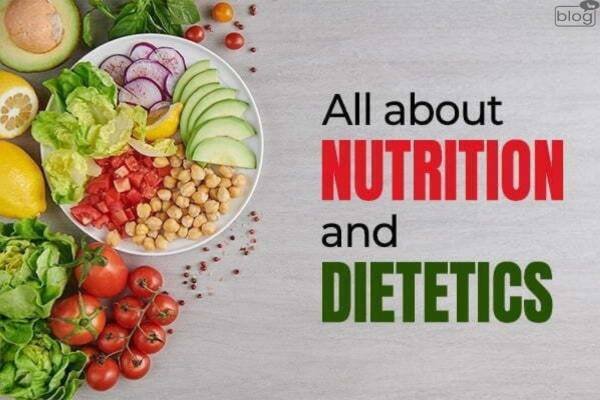Most people watch celebrities, basically actors and actresses, notice their wonderful bodies and wish to get this type of body shape through dieting.
In this regard, many people must have heard about Dietetics, Nutrition & Food Science subjects.
When you hear about Nutrition & Food Science subjects, you may think that it is a cooking issue.
Many people do not have a clear idea about this issue, mainly because such an idea has arisen in their minds.
You may be wondering what are the benefits of pursuing a degree in these disciplines or maybe you can think about what is the role of these subjects in health/medical science as well as career opportunities?
But before knowing this, let’s get to know about these subjects.
Dietetics:
Dietetics is defined as ‘the application of the science of nutrition to the human being in health and disease.’
However, the term ‘dietitian,’ used to describe a practitioner of dietetics, was in use long before the science of nutrition had become an accepted discipline.
Dietetics is the scientific study of how food and nutrition affect health.
Degree courses in this subject area teach about metabolism, dietary requirements, disease and more, taking from other disciplines such as physiology and sociology.
Nutrition:
Nutritional science (also nutrition science, sometimes short nutrition, dated trophology) is the science that studies the physiological process of nutrition (primarily human nutrition), interpreting the nutrients and other substances in food in relation to maintenance, growth, reproduction, health and disease of an organism.
Food Science:
Food Science is a multidisciplinary field involving chemistry, biochemistry, nutrition, microbiology and engineering to give one the scientific knowledge to solve real problems associated with the many facets of the food system.
At this stage, let’s see what you need to read in Nutrition & Food Science subjects:
- Introduction of Food Technology and Nutrition Science
- Inorganic & Physical Chemistry
- Organic Chemistry
- Food Chemistry
- Biochemistry
- Human Anatomy
- Human physiology
- Food Microbiology
- Food Technology
- Technology of Food Processing,
- Food laws and quality control of food and beverage
- Community Nutrition
- Nutrition Planning
- Child & Maternal Nutrition
Etc etc……
Dietetics
- Clinical Dietitian
- Dietitian in public, private or government health program
- Dietetic manager within a business or clinical setting
- Sports nutrition dietitian
Food Science
- Food Chemist
- Food Manufacturing Supervisor
- Food Microbiologist
- Food Product Developer
- Quality Assurance Technician
- Food Industry Sales Representative
- Food Quality Analyst
- Flavor Chemist
- Sensory Scientist
Human Nutrition
- Production Chemist (i.e., Bio-Rad Laboratories)
- Nutrition Product Developer
- Quality Assurance (Food Industry)
- Nutrition Scientist (pharmaceutical)
- Health professional in Public Health
- Health professional in Dentistry
- Health professional in Veterinary Medicine
- Laboratory Research Technician
All kinds of malnutrition, diabetes, high blood sugar and other diseases and stress in individual life due to various reasons, and an atmosphere of uncertainty about future life have made the life of people more complicated.
And within the problems lies the potential. The need for professionals in food and nutrition science is vastly expanding and will continue to grow.
Feel free to mention the need for qualified professionals to solve such complex problems.
A few weeks of online training will not help in this case.
Entry into the profession with honors is preferred with at least a Master’s degree from a university followed by a PhD in higher education.
Also, research on malnutrition among a large number of children in the country and employment opportunities in organizations working in this field are increasing.
Research has new opportunities to ensure food and nutrition security for the general public.
Besides, the demand for good dietitians for athletes and stars is also increasing. There are also huge opportunities in food processing technology and management.
Research opportunities in food and nutrition science are gradually increasing in various universities.
Although there are many consultants in this regard, the number of properly trained ones is far less than required.
That is why there are many opportunities for qualified people to advance in this profession.
To read more blogs,click here
Writer
Kulsuma Bahar Bethi
Content Writing Intern
YSSE

